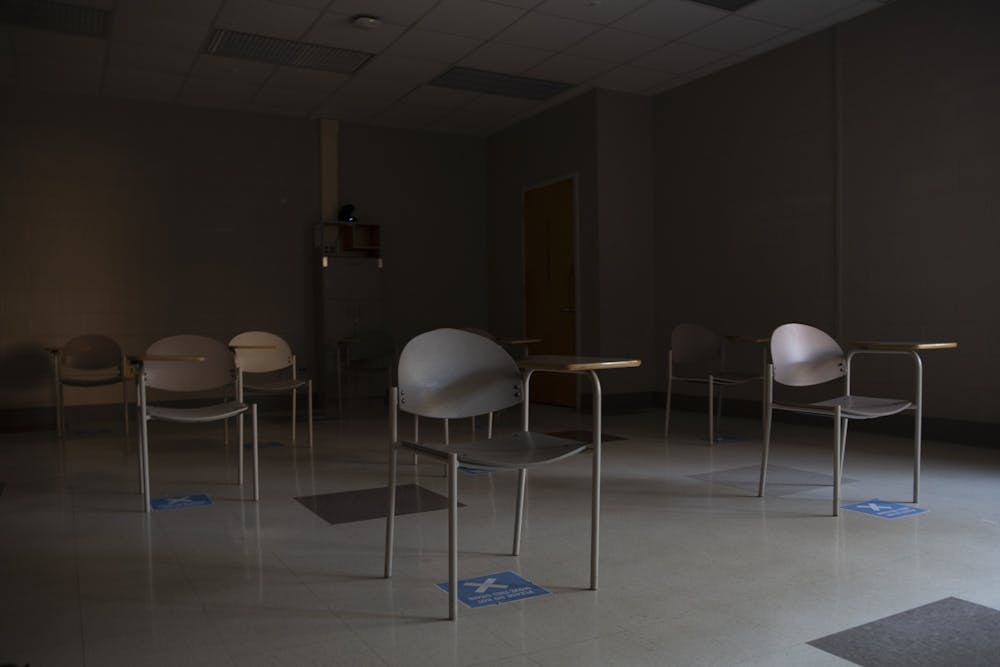March 12, 2020 — a day that will live in infamy.
As Americans, the normal day-to-day activities of life came to a sudden stop. For students, this was the last time many of us experienced in-person classes.
Since then, millions of students have been attending classes virtually. Our rooms have transformed into our workspaces, Zoom has been our new classroom and meaningful connections with our peers have ceased to exist.
That may soon change in North Carolina public schools. With the introduction of Senate Bill 37, North Carolina legislators proposed that K-12 school districts offer an in-person learning option to all students. Parents would maintain the option of sending their children back to class or keeping them at home virtually. Lawmakers in support claim the bill is needed because students have been falling behind in academics since the shift to virtual classes.
Gov. Roy Cooper recently vetoed the bill, questioning the safety of in-person classes. Should a new COVID-19 variant appear, Cooper argues the bill will take the power out of state and local officials' hands.
Cooper brings up rational concerns. As the old saying goes, “if you’re going to do something, make sure you do it right the first time.” State and local officials still need to maintain the power to make decisions about the status of in-person instruction, should a future outbreak arise.
However, the bill comes with the right intentions. Students across the nation are struggling to keep up academically. In North Carolina, school districts report that 23 percent of their students are at risk of academic failure and are not successfully progressing toward grade level promotion.
Academic progress in the state is so far behind, a bill unanimously passed by the North Carolina General Assembly would offer an optional six-week summer school to make up some of the ground lost in remote learning.
When schools first closed down, the severity of COVID-19 was far less clear. Since then, not only have we learned the importance of mask-wearing and social distancing, but also the efficiency of items like open windows and HEPA filters.




